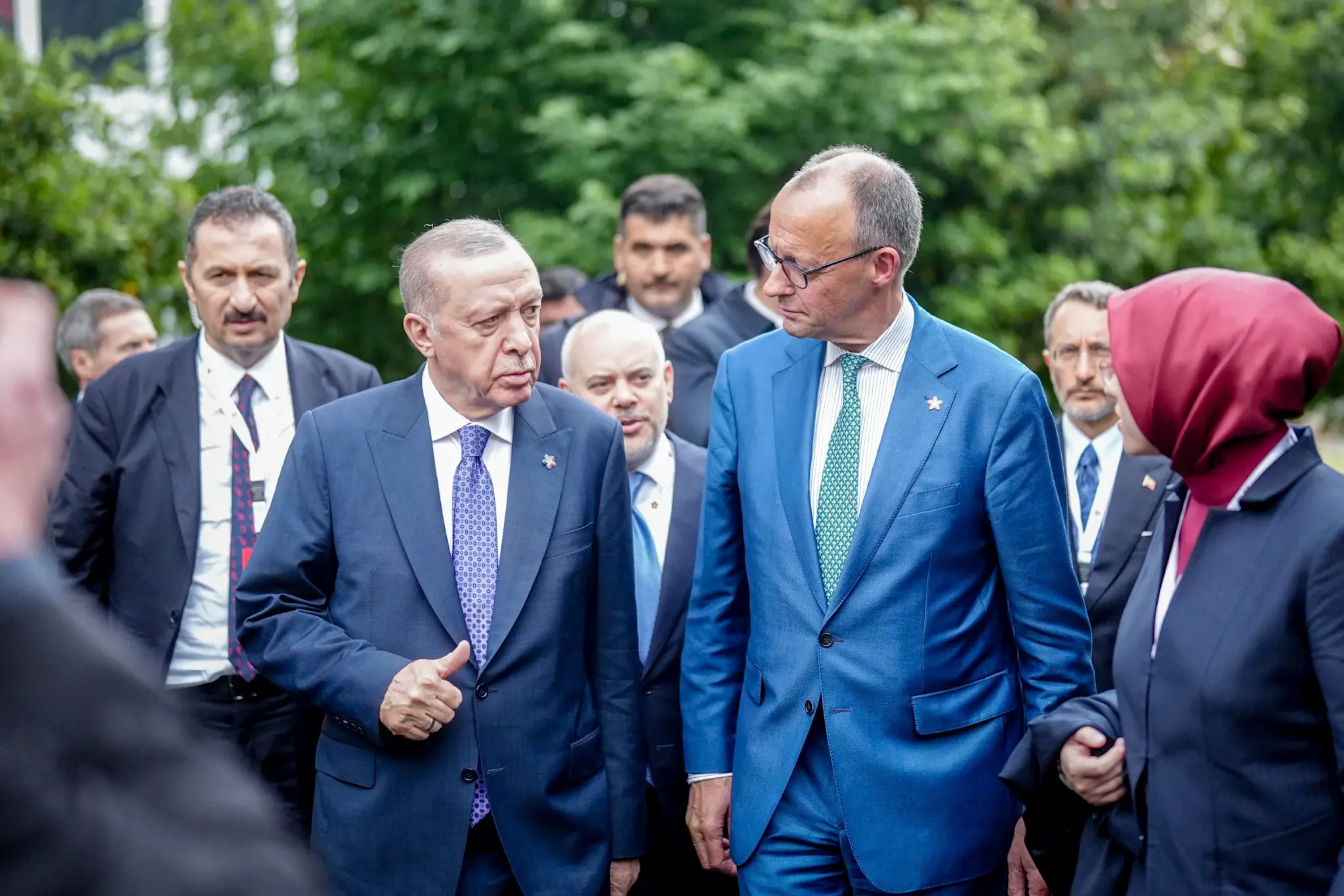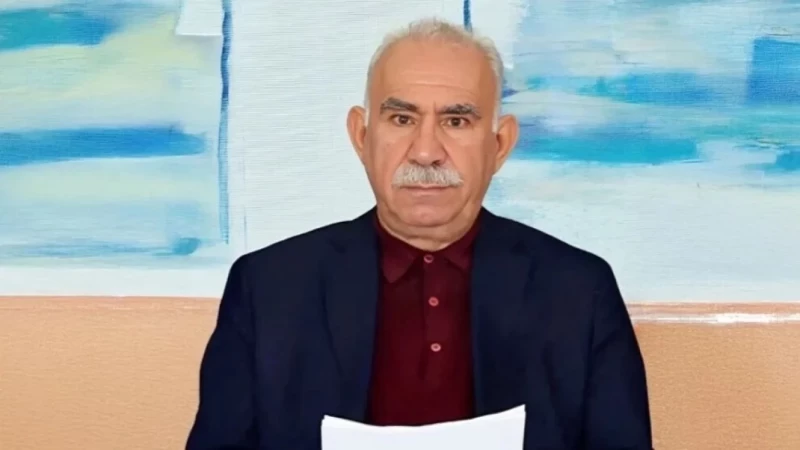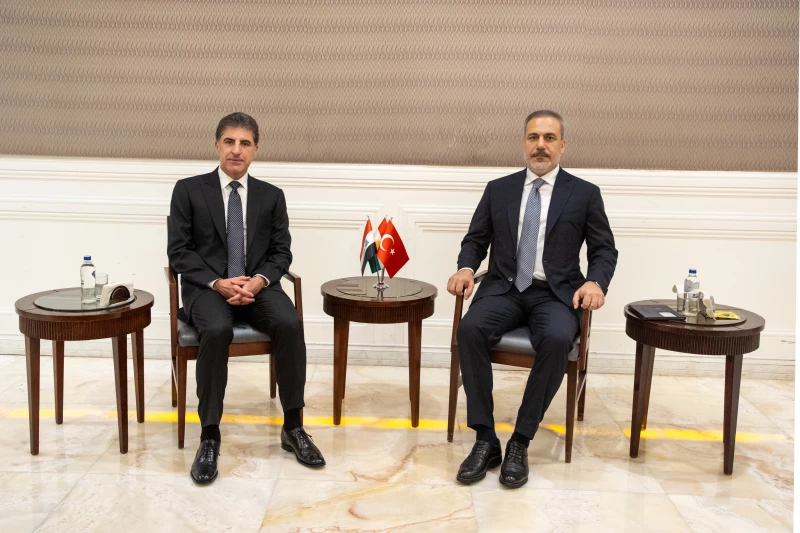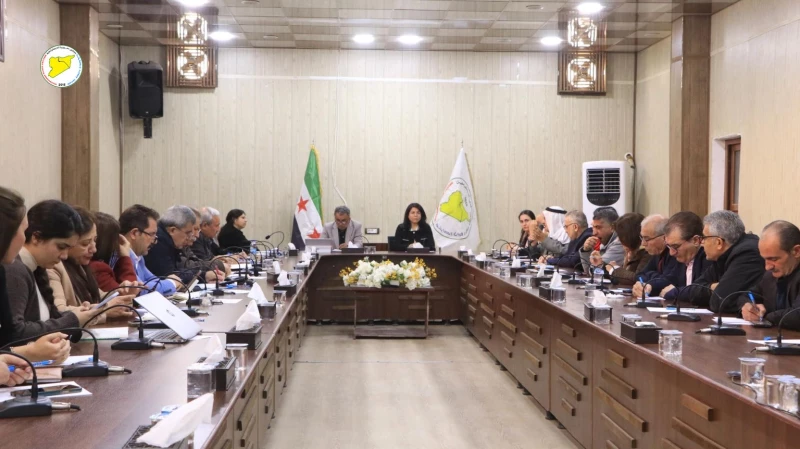ERBIL, Kurdistan Region of Iraq – German Chancellor Friedrich Merz must not ignore Turkey’s violation of human rights and democracy, Human Rights Watch (HRW) said Wednesday, ahead of his arrival in the country to discuss foreign policy, security, and bilateral ties.
Merz is set to visit Turkey on Thursday, days after popular jailed Istanbul Mayor Ekrem Imamoglu, from the main opposition Republican People’s Party (CHP) and considered President Recep Tayyip Erdogan’s biggest challenger, was charged with espionage alongside other allegations, including bribery, extortion, and aiding the Kurdistan Workers’ Party (PKK).
“Merz would do well to voice concerns that locking up and removing elected opposition politicians raises the prospect of Turkey abandoning its history of democracy and becoming a far less stable partner,” HRW said, stressing that he “should not overlook Turkey’s deepening slide on democracy and rights.
The watchdog further accused Erdogan’s administration of “increasingly suppressing the political opposition and the media while expanding political control of the courts.”
Imamoglu was nominated as CHP’s candidate for the 2028 presidential elections. He was arrested alongside dozens of fellow party members in March.
His arrest sparked large demonstrations across the country, with clashes breaking out between protesters and security forces who used tear gas and water cannons to quell the protests. The recent espionage charges were also condemned by several political parties, including the pro-Kurdish Peoples’ Equality and Democracy Party (DEM Party).
HRW described the espionage allegations that he leaked data to the UK and other countries as “flimsy,” adding, “It comes on top of unsupported accusations by the Istanbul prosecutor that Imamoglu is the leader of a criminal organization.”
The espionage charges came days before UK Prime Minister Keir Starmer visited Erdogan in Ankara for talks on Turkey acquiring fighter jets. Starmer did not voice concern over the charges.
“Germany and other European Union member states should not ignore Turkey’s authoritarian trajectory in trying to deepen their alliance with Erdogan around defense, regional developments, and economic relations,” HRW stressed.
“While the Erdogan government is sure to promote important efforts underway to end the four-decade conflict with the Kurds, Merz and other European leaders need to call out the simultaneous vicious crackdown at home and not look the other way,” it added.
The Turkish state and the PKK are moving forward with the renewed peace process that gained traction following a call by their jailed leader Abdullah Ocalan in February to disarm - ending a four-decade insurgency.
The PKK on Sunday issued a historic statement, declaring the withdrawal of “all guerrilla forces in Turkey” to the Medya Defense Areas in the Kurdistan Region, where the group’s headquarters on Qandil Mountain is located.
One of the requests by the pro-Kurdish DEM Party is that the jailed politicians be freed, while the PKK is also calling for Ocalan’s release, who has been imprisoned on Imrali island since 1999.
Anti-LGBT+ measures
In another report hours later, HRW warned that a leaked draft law suggests that Turkey is moving to criminalize LGBT people by threatening prison sentences of up to four years for expressions or promotion of “attitudes and behavior contrary to biological sex and general morality” and greatly restricting access to gender-affirming healthcare services for trans people.
“Bringing criminal charges against people for their gender identity or sexual orientation is a profound violation of human dignity and amounts to state-sanctioned oppression,” said Hugh Williamson, Europe and Central Asia Director at HRW. “The Turkish government should drop plans to introduce these amendments, which blatantly violate international law and would leave LGBT people in constant fear of arrest and prosecution.”
The proposed amendment to Article 225 of the Penal Code would allow criminal charges for anyone who takes part in a same-sex engagement or marriage ceremony, with a penalty of up to four years.
Currently, Turkey does not allow same-sex marriage, which means that such ceremonies are private and purely symbolic, according to the watchdog.
“The European Union and Council of Europe and their member states should use all diplomatic and political channels to ensure this regressive draft law, which would put LGBT people in Turkey in grave danger, is abandoned,” Williamson said. “This is a defining test of Turkey’s respect for rule of law and fundamental democratic principles on rights and equality.”
The EU's Charter of Fundamental Rights prohibits discrimination based on sexual orientation and protects freedom of expression and information.



 Facebook
Facebook
 LinkedIn
LinkedIn
 Telegram
Telegram
 X
X


